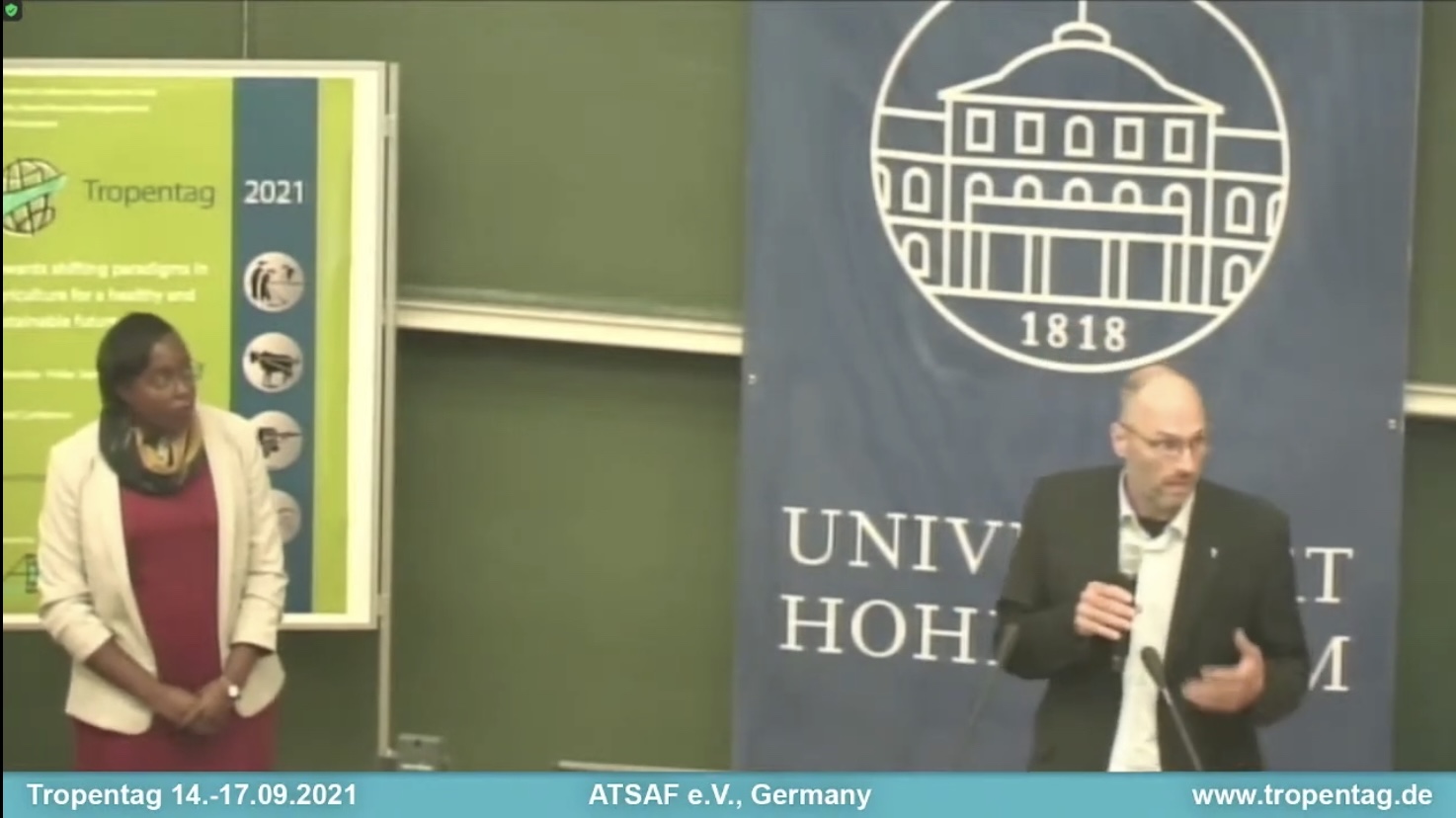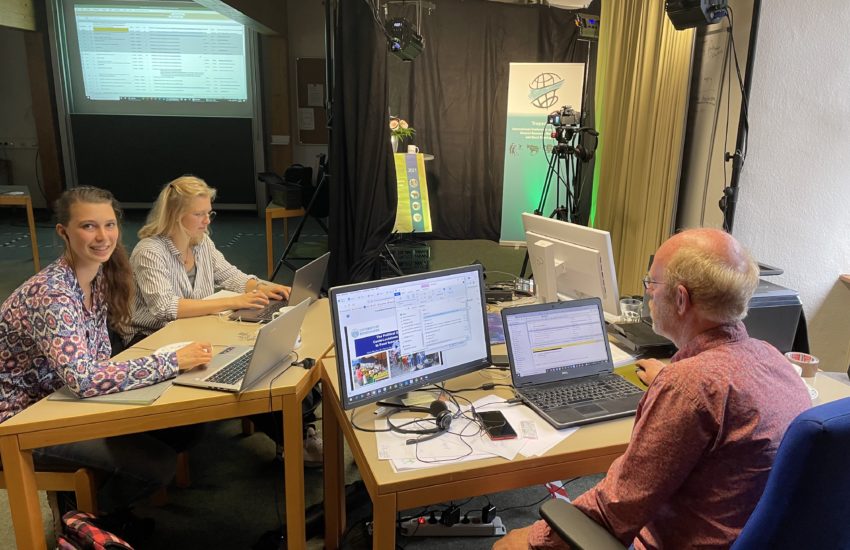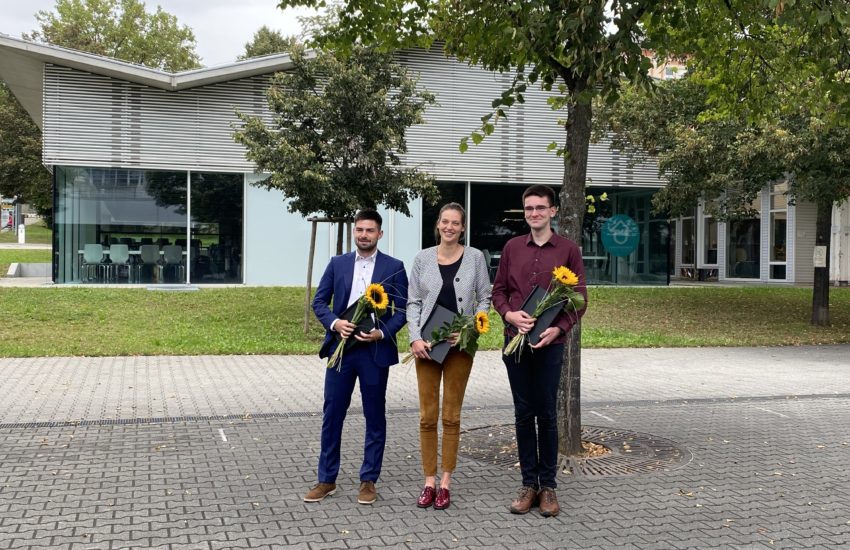6 Provocations, 5 Slams, a Common thread
Try presenting your research topic in 6 minutes. That’s basically the whole idea of the science slam, 6 scientists sharing a summary of their research in different fields of agriculture, related to the general theme of Paradigm shift.
Add a six minute time limit per presenter to the mix and here’s what we got below:
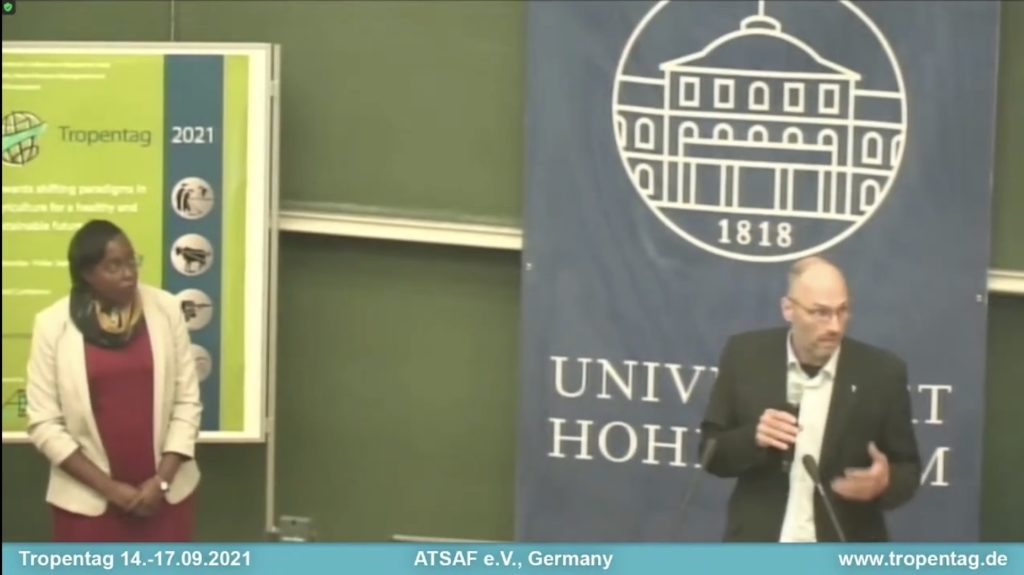
Charles Nwankwo from Hohenheim started off the science slam with a relevant intro into changes needed in research to create agricultural innovation that are applicable in real life.
He emphasised a multifactor research design that considers other socio economic factors and tailoring recommendations based on soil types, gender and more localised situations. These little changes, he observed matter to the farmers. His main conclusion highlighted the importance of a more involved approach, involving farmers from the very beginning of research conceptualisation to design and implementation of solutions.
Speaking of involved approaches, Marion Reichenbach from Kassel addressed what she labelled the current one size fits all paradigm of intensification in livestock science.
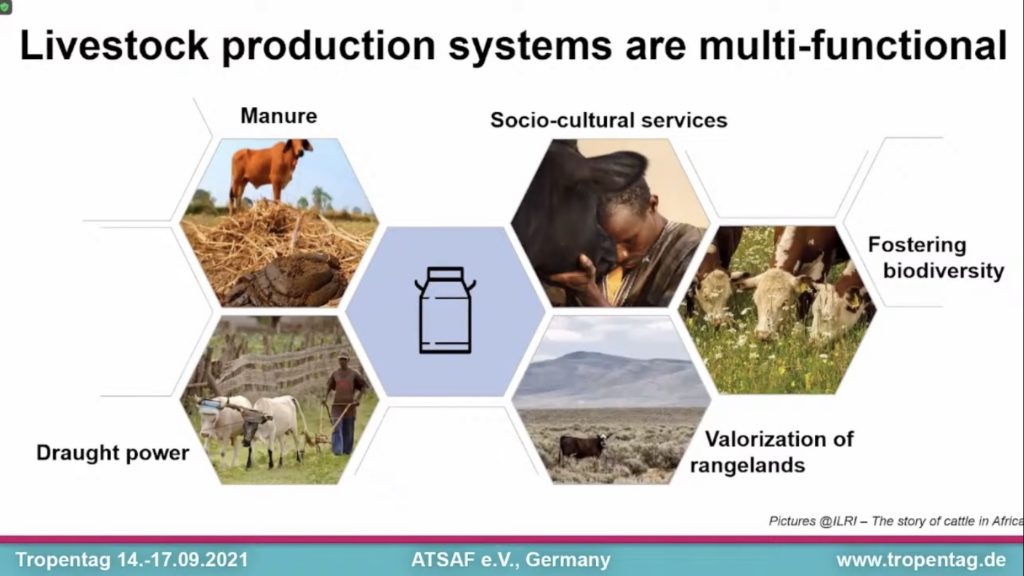
Marion agrees with previous speakers that the solution should not be oversimplified or generalised from Western practices, because livestock producers around the world have different motivations, consumer groups, access to resources and so on. What she thinks could be done differently is involving all stakeholders along the value chain; including the producers and consumers – again following a similar theme to the first presenter. Marion affirms that livestock production should adopt a strategy which re-centres people and not just how much meat we can produce. A diversity of minds and ideas is needed.
On the theme of diversity, Stephanie from Vienna broached the difficult subject of gender equity and participation. Stephanie takes a gender perspective to agriculture for a deeper look at structural causes of inequality and decision-making power.
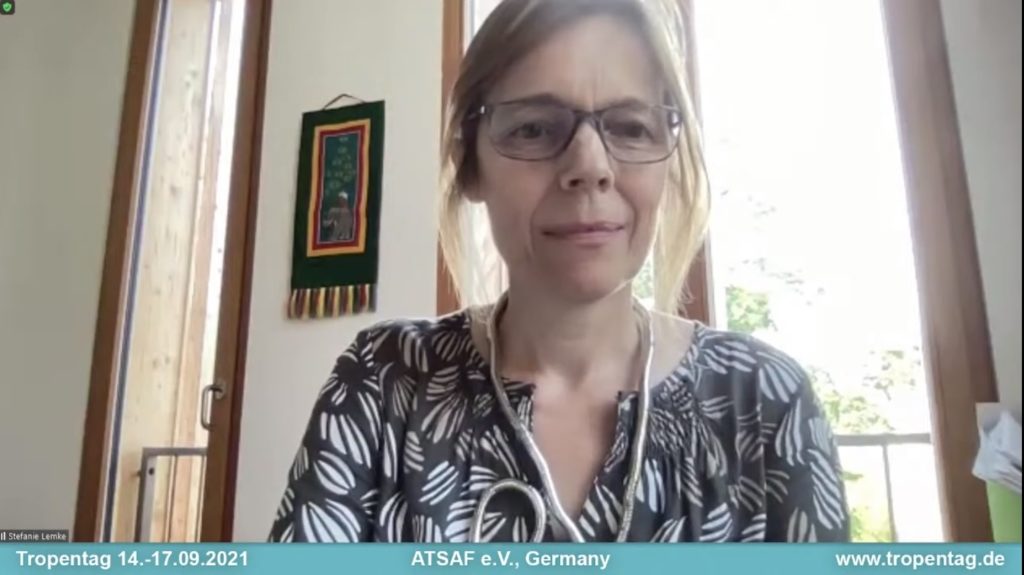
Crisis of care means women are burdened with reproductive work and care work at the expense of economically productive activity, whilst the work they do goes uncompensated. Sometimes, those who are violated accept and justify this as normal based on social or religious norms, which is soft violence. Stephanie shares success stories from Kenya and Uganda where these norms were changed using participatory frameworks. For women in these communities to be fully involved, Stephanie says they need to be released from their household work burden, by improving policies that support women such as remuneration for care work, support with household farming tools, and creating extension services focusing exclusively on women. We also need to overcome the stigma of talking about gender based violence and encourage open, participatory dialogue.
On open participation, Johannes Schwegler from Fairventures worldwide introduces us to TREE O; a transparent digital tool that assists the shift from physical sampling to no-cost digital sensors for single tree monitoring in smallholder agroforestry projects.
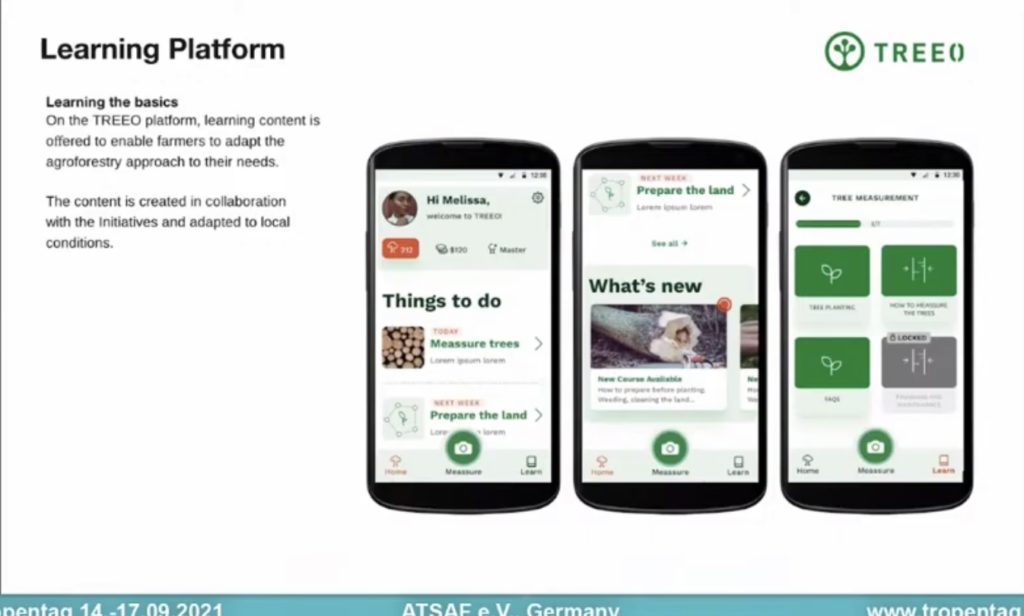
The agroforestry project enables farmers to plant local or native trees and register each seedling onto a database. The farmers monitor the growth of these trees and can get paid for the estimated carbon sequestration benefits. Here, the TREE O mobile phone app is used to provide real-time information to the farmers about their trees, carbon sequestration and potential compensation. The app is also monitor growth rate for carbon compensators. Based on growth rates we can measure the CO2 sequestration. The projects are carried out for the timber value chain, harvested and replanted after few years. Intercropping is practiced between growth cycles.

Patrick Worms of CIFOR gave us six provocations that are often ignored but crucial in transforming smallholder agriculture for the better. These are:
- Land reforms work – China and Taiwan are examples that farmers need land and technical advice rather than fertilisers and input.
- Corporate investments in land and commodity plays does not boost development for smallholders and rural communities.
- Private sector advisory services are responsible for degradation from farming because they are financed and biased by commercial input and mechanisation companies.
- NO to input driven farming, instead improve farming systems and teach neighbours
- Tractors & agrochemicals are toys for boys. Wise farmers use trees and livestock
- Monocrops suck
Finally, Folkard Asch rounded up the session by looking to the near future.
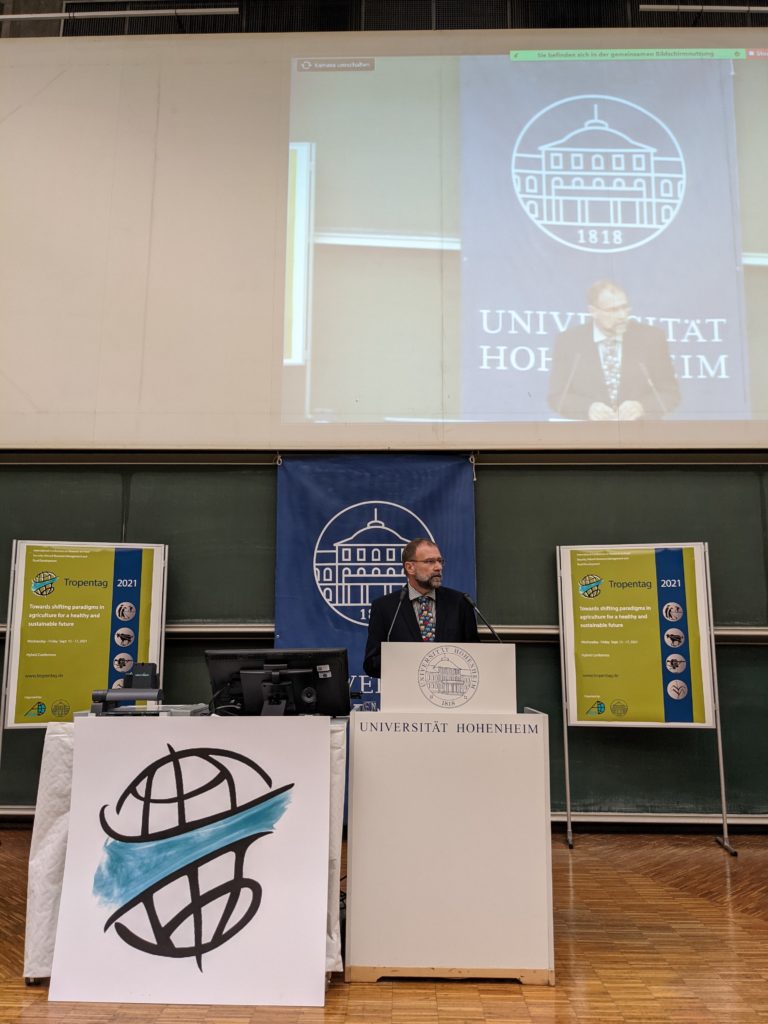
The Planet is a dangerous place for agriculture, he says and our best solution is to get a large share of agriculture indoors in a way that recycles resources. Of course, we need to do this also in a way that produces food for people and not just money for some. The focal point of his message is that agriculture should be put indoors – greenhouses, sky scrapers etc – sustainably. By doing so, we can reduce waste, reduce pollution and recycle resources like water and nutrients more closely. In indoor cropping systems, plants are movable and are not subject to arbitrary weather changes. More things need to be discovered in this field but bringing agriculture indoors particularly to cities might just be the next big thing.

